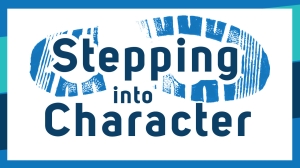
Series Overview
We often try to stop behaviors or habits, without fixing the things that cause them. Doctors never tell someone who has suffered a heart attack to stop having heart attacks. Instead, they give instructions to change diets, exercise routines and other lifestyle activities, in order to ease pressure on the heart. In the same way, we have to adjust our lives to allow our bodies to be all that God intends for them to be. The things we look at, listen to, and allow into our lives affect not only our physical health, but also our spiritual health. So, for the next 4 weeks, we are going to start to look at the whole self and not just see ourselves as a collection of “parts.”
Week 1 (September 16, 2012)
It has happened to all of us: We have all been caught off guard by an emotion. Perhaps you were watching a movie and, out of nowhere, you started to tear up. Maybe someone said something innocent to you and you just snapped and yelled something back. Have you ever felt your heart break by just watching a commercial? What about sitting in church and just feeling disconnected or out of whack? All of these situations suggest that there is some connection between our emotional health and our spiritual health. In the poetic language of Proverbs, we are told that our “heart” is something to be guarded, for it is the center of life. Well, today we want to start our series called “Parts” by exploring our students’ emotional health. We want to know how their hearts are doing, and we want to encourage our students to pay attention to their hearts.
Talk to your student about the connection between our emotional health and our spiritual health. Ask your student about the last time they felt compassion?
Week 2 (September 23, 2012)
This week, we are focusing on how important our eyes are to our souls. The Bible says that our eyes are the light to our souls. Just like a light in a dark room, God wants to bring His light to every part of our lives. Darkness symbolizes sin and separation from God. If we continue to allow our eyes to be fixed on things apart from God, darkness will continue to fill up our souls (mind/will/emotions). God wants us to “fix our eyes on him.” He wants us to allow our souls (mind/will/emotions) to be filled up with things that encourage our relationship with him. We must be careful what we look at in order to protect our souls from sin and darkness. We want our students to know that what they look at will change them, and that from now on they need to begin guarding their eyes.
Talk to your student about how you guard what you look at. Ask your student if they think they are negative consequences to some of the things that we see.
Week 3 (September 30, 2012)
One of the most powerful gifts that God has given us is the ability to communicate. However, our mouths can be one of our most dangerous and harmful weapons. The Bible talks about the tongue being a double-edged sword. The idea of the tongue as a sword refers to the ability to both protect and destroy. One of the most difficult areas for us to use self-control as teenagers is our use of words. With the same mouth that we use to worship our God and pray, we curse and hurt other people. We have to grasp the incredible opportunity and responsibility we have to use our words. God wants us to use them to build others up. He blesses us with the ability to communicate and even gives us the words He wants people to hear. It is our responsibility to train ourselves to use our words in ways that are healing and helpful. We want our students to begin to choose to build others up rather than tearing them down.
Talk to your student about a time where you chose to build someone up with words rather than tear them down. Ask your student how they can build someone up this week.
Week 4 (October 7, 2012)
There is an old saying, “garbage in, garbage out.” As clichéd as that might sound, it’s absolutely true. As much as we would all love to prove our others wrong about the music we listen to, the truth is that what we hear and the people we listen to affect us. It also affects what our futures will look like. This week, we are looking at the ear. We all get and give advice on a daily basis. Our decisions are greatly affected by whose advice we listen to. If we listen to the wrong people, we will more than likely end up with regrets and possibly be in danger. We must also be on guard against ourselves. Sometimes, others know more about situations than we do. We must be careful to surround ourselves with people who have our best interests in mind. We must also be willing to listen and follow through with what they advise us to do.
Talk to your student about a time in your life where you listened to bad advice. Ask your student which of their friends they usually go to for advice.


